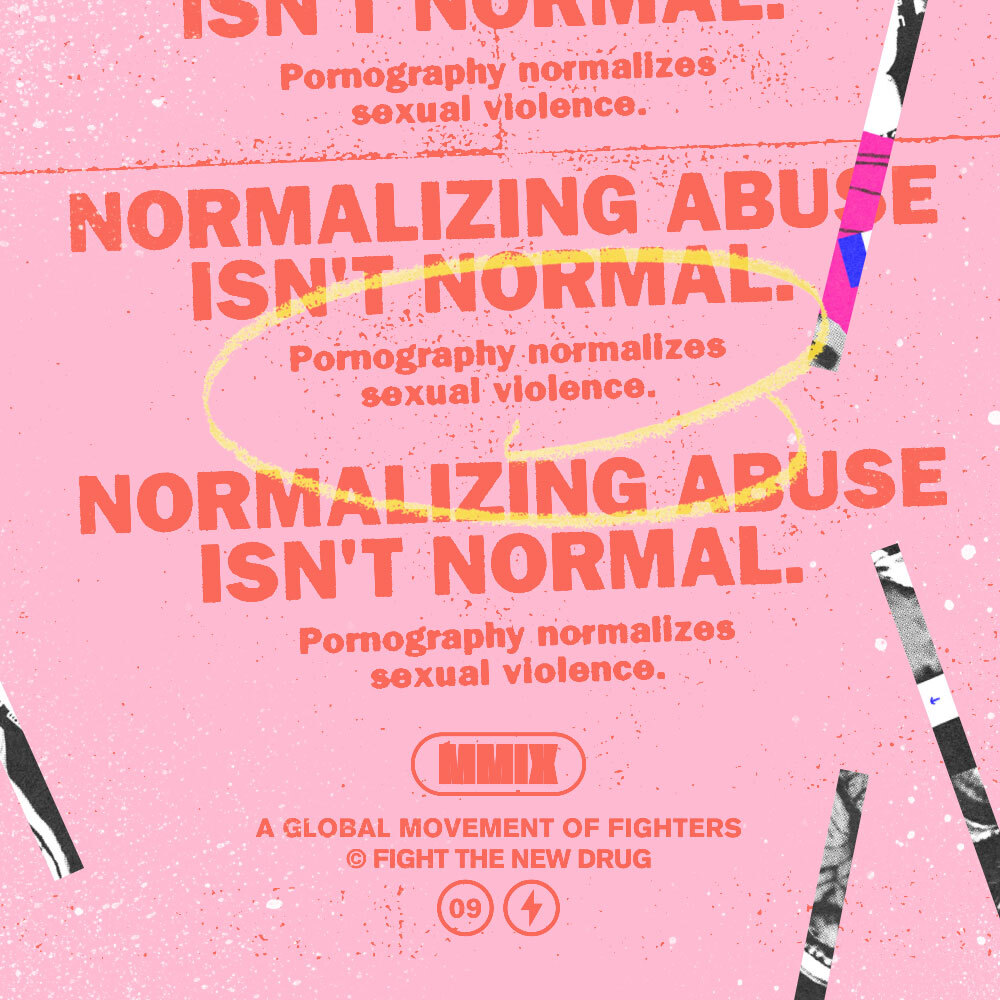Jennifer (name has been changed) shared naked pictures of herself with her partner, as many couples do in our digital age of relationships.
After they stopped dating, Jennifer’s ex tried to use her images against her by creating a website filled with her nude images and telling Jennifer that he was going to send the link to her friends and family. Jennifer begged for the site to be taken down. Her ex offered to sell her the domain for $75,000, and she responded with a lawsuit.
Jennifer’s story was shared in a new book by cyber abuse lawyer Carrie Goldberg. Unfortunately, Jennifer’s story is one of the millions throughout the world and one of many Goldberg writes about in Nobody’s Victim: Fighting Psychos, Stalkers, Pervs, and Trolls.
Related: 7 Things You Can Do If You’re A Victim Of Deepfakes Or Revenge Porn
Researchers are referring to this harassment as image-based sexual abuse. The motives range, but it is a gendered issue largely with men perpetrating attacks on women. Not always, of course, but it is a significant trend.
This new world of sexual abuse is devastating for victims. As technology evolves, so do the tactics used to harass and humiliate while laws to protect lag behind in the last decade. Many victims have not been physically assaulted—a requirement traditionally associated with sexual abuse—and yet research shows how their betrayal and loss of privacy trigger similar traumatic responses.
One survivor named Deborah explained it this way to researchers:
“It’s a type of rape, it’s just the digital version, like you’re still being exploited, you’re still being made very vulnerable against your will…you’re being raped, just in a very different way, it’s a new version of it.”
An unfortunate fact is that image-based abuse, often called “revenge porn,” is big business in the world of adult entertaiment.
The lack of justice for nonconsensual porn victims
It turns out that some major flaws exist when it comes to addressing illicit nonconsensual porn and holding responsible parties accountable for sharing content without permission.
The activist who launched the #NotYourPorn campaign to raise awareness and hold the porn industry accountable for their actions in sharing nonconsensual images, Kate Isaacs, says that “it’s completely legal for porn sites to be hosting and profiting from nonconsensual content.”
Why?
Because “the law only applies to individuals, not commercialized companies…” In other words, porn sites cannot be held responsible for profiting off of nonconsensual porn uploaded to their platforms. You can only hold accountable the seemingly untraceable individual who posted the content on the site.
Related: Their Private Videos Were Nonconsensually Uploaded To Pornhub, And Now These Women Are Fighting Back
Kate says that this reality is clearly exhibited by the “amount of content that comes up when you search anything like ‘leaked’ or ‘stolen’ – there’s a lot of it, and it’s dressed up as ‘fantasy.’” What it comes down to is that “there’s no way for them to tell if that content is consensual or not.”
And, even when victims try to hold individuals who’ve shared nonconsensual nudes accountable, the language in the legislation makes it nearly impossible for a victim to get justice.
Assistant professor at Durham University’s Department of Sociology, Dr. Kelly Johnson says the legislation language, “disclosing private sexual photographs and films with intent to cause distress,” makes it so that “you have to prove that someone shared it with the intent to cause distress to the victim.”
According to Dr. Johnson, this means “if you report someone for sharing your nudes against your will, they could just say to the police, ‘I didn’t think she’d ever find out’ or ‘I was just doing it for a laugh,’” making it easy for the perpetrator to avoid being held accountable.
Even though porn sites are not moderating in the way they profess to be and the law has a number of loopholes that keep people from being fully protected, there is an army of women who are waging war on nonconsensual porn.
The fight to get nonconsensual porn site Anon-IB shut down
Anon-IB is a porn database that allows people to track nonconsensual porn victims (who are often underage) by name and location.
Emilia, the 23-year-old from Rhode Island who is leading the charge against the site, had nudes of herself shared by an ex to the porn database.
Related: What’s “Upskirting,” And How Does The Porn Industry Fuel This Twisted Trend?
After first being alerted to her presence on the site, she scrolled further down and found pictures of six other girls she had graduated from high school with. Each was underage when their photos were taken, and all photos included their names and locations.
This led Emilia to create a TikTok video warning women about Anon-IB. The video garnered more than 9.7 million views and hundreds of comments from women, many of who are survivors of nonconsensual porn.
While Anon-IB has been extremely difficult to remove, all the attention Emilia’s video has received, the media attention and the growing outrage with the site are making a difference. Authorities have at times shut the site down and it has been repeatedly forced to change URLs, almost certainly harming popularity and revenue streams.
Technology-facilitated sex abuse is big business
But just how profitable are image-based abuse sites, really? Let’s look at the numbers for IsAnyoneUp.com, another former revenge porn site. At its peak in popularity, the website pulled about $10,000 a month in ad revenue. The site even employed a hacker who they paid $200 a week to produce new content for the site by hacking his way into people’s email accounts and stealing pictures. Add all this up and in 2010, the website was making more than $300,000 a year on solely revenge porn.
And that was just one website. Think of the collective cash that all the other revenge porn websites might be making.
Another shut-down revenge porn website, UGotPosted, got similar attention for its popular sexual exploitation site. According to the prosecution in the case:
“Posters to UGotPosted.com either hacked victims’ photos or had access to them through a previous relationship. The site put up 10,170 posts containing nude and explicit photos of individuals without their permission between December 2012 and September 2013…”
Related: Here’s What It’s Like To See Yourself In A Deepfake Porn Video
This case is even worse because the victims were harassed and extorted once their photos were posted. According to Huffington Post:
“People who sought to have the explicit images taken down were directed to changemyreputation.com and charged $250 to $350 to remove the racy content. Victims included teachers, wives and professionals. The compromising photos cost people jobs, damaged relationships and led to one attempted suicide. Bollaert earned about $900 a month in website ad revenue and collected about $30,000 from victims.”
The creator of UGotPosted was eventually sentenced to 18 years in prison.
How can we take action?
When porn sites reportedly knowingly allow videos and images to be uploaded by users without being checked, they’re effectively facilitating the perpetuation of nonconsensual porn.
And that facilitation leads to real people like Jennifer and Emilia to suffer.
That’s one of the numerous reasons why we refuse to click.
Click here to learn what you can do if you are a victim of image-based abuse or revenge porn.

Your Support Matters Now More Than Ever
Most kids today are exposed to porn by the age of 12. By the time they’re teenagers, 75% of boys and 70% of girls have already viewed itRobb, M.B., & Mann, S. (2023). Teens and pornography. San Francisco, CA: Common Sense.Copy —often before they’ve had a single healthy conversation about it.
Even more concerning: over half of boys and nearly 40% of girls believe porn is a realistic depiction of sexMartellozzo, E., Monaghan, A., Adler, J. R., Davidson, J., Leyva, R., & Horvath, M. A. H. (2016). “I wasn’t sure it was normal to watch it”: A quantitative and qualitative examination of the impact of online pornography on the values, attitudes, beliefs and behaviours of children and young people. Middlesex University, NSPCC, & Office of the Children’s Commissioner.Copy . And among teens who have seen porn, more than 79% of teens use it to learn how to have sexRobb, M.B., & Mann, S. (2023). Teens and pornography. San Francisco, CA: Common Sense.Copy . That means millions of young people are getting sex ed from violent, degrading content, which becomes their baseline understanding of intimacy. Out of the most popular porn, 33%-88% of videos contain physical aggression and nonconsensual violence-related themesFritz, N., Malic, V., Paul, B., & Zhou, Y. (2020). A descriptive analysis of the types, targets, and relative frequency of aggression in mainstream pornography. Archives of Sexual Behavior, 49(8), 3041-3053. doi:10.1007/s10508-020-01773-0Copy Bridges et al., 2010, “Aggression and Sexual Behavior in Best-Selling Pornography Videos: A Content Analysis,” Violence Against Women.Copy .
From increasing rates of loneliness, depression, and self-doubt, to distorted views of sex, reduced relationship satisfaction, and riskier sexual behavior among teens, porn is impacting individuals, relationships, and society worldwideFight the New Drug. (2024, May). Get the Facts (Series of web articles). Fight the New Drug.Copy .
This is why Fight the New Drug exists—but we can’t do it without you.
Your donation directly fuels the creation of new educational resources, including our awareness-raising videos, podcasts, research-driven articles, engaging school presentations, and digital tools that reach youth where they are: online and in school. It equips individuals, parents, educators, and youth with trustworthy resources to start the conversation.
Will you join us? We’re grateful for whatever you can give—but a recurring donation makes the biggest difference. Every dollar directly supports our vital work, and every individual we reach decreases sexual exploitation. Let’s fight for real love:




